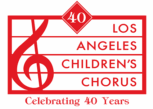


“The characteristics of a good musician can be summarized as follows:
A well-trained ear,
A well-trained intelligence,
A well-trained heart,
A well-trained hand.
All four must develop together, in constant equilibrium.”
-Zoltan Kodály
LACC’s Musicianship Program is based on the acclaimed Kodály Concept, a sequential approach to music education that emphasizes training in basic musical skills, including reading and writing music. Musicianship teachers use aural, visual, and kinesthetic techniques to teach choristers in each ensemble, from Preparatory Choir through the mixed-voice Chorale. Music theory is taught in conjunction with weekly or biweekly rehearsals, during which academic concepts learned in musicianship class are reinforced through singing. Conversely, music being studied by each ensemble is taken to theory classes where it is used to reinforce sight-singing skills and theory lessons.
The goal of LACC’s Musicianship Program is to provide choristers with the tools they need to:
- Read music fluently;
- Appreciate music and describe what they hear using a musical vocabulary;
- Become better singers and musicians; and
- Understand and interpret music from many eras and cultures.
The Musicianship Program is an essential component of LACC’s overall music education program. Offered from September – May, it is overseen by Fred Meads, Associate Artistic Director.
THE KODÁLY CONCEPT
The Kodály Concept is an approach to music education developed in Hungary during the mid-20th century by Zoltán Kodály.
The Kodály Concept is:
- a philosophy of education and a concept of teaching, and
- a comprehensive program to train basic musical skills and teach the reading and writing of music, and
- an integration of many of the best ideas, techniques, and approaches to music education, and
- an experience-based approach to teaching.
For more information on the Kodály Concept, please visit the website of the Organization of American Kodály Educators.


